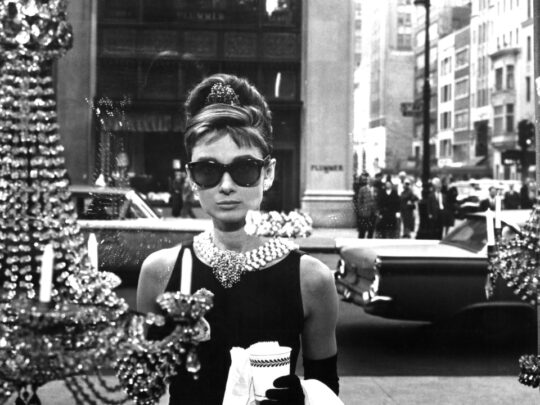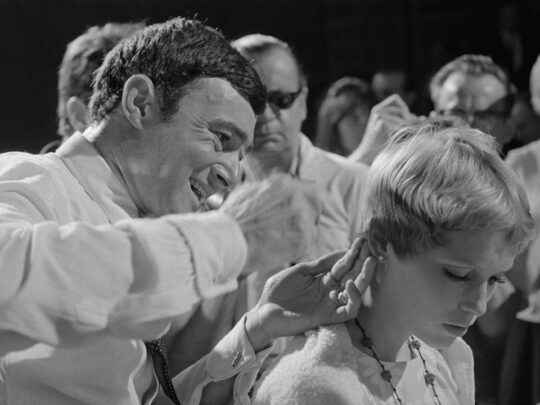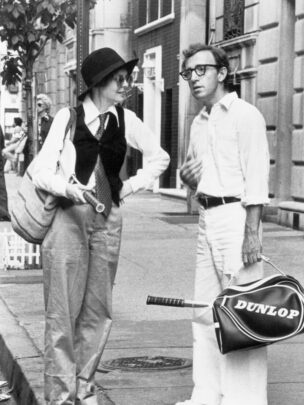
It’s true! The movies have always played their part in shaping what we wear. When you think about the classic films of the 1950s, ’60s and ’70s, there are some notable stand-outs. From Audrey Hepburn’s little black dress to the pixie haircut donned by Mia Farrow, it was at the movies when we first got a glimpse of these iconic looks.
Here are 10 classic movies that influenced our approach to fashion.
Edith Head was the costume designer in charge of dressing the stars in this Hitchcock thriller. She won an Oscar (and deservedly so) for five stunning outfits worn by Grace Kelly (before she became a member of Monaco royalty). The sweeping skirts, fitted bodices and ladylike, elbow-length gloves cemented Grace Kelly as an icon of elegance.

Arguably the most iconic film image is that of Audrey Hepburn, croissant in one hand, coffee in the other, wearing that little black dress. The film is also renowned for bringing us ankle pants, oversized sunglasses and superbly tailored woollen coats. The LBD was designed by Givenchy and to this day is regarded as the quintessential item of clothing for the 20th century.

How badass did Faye Dunaway look at Bonnie Parker? (And Warren Beatty didn’t look too bad either…) The film may have been set during the Great Depression, but Dunaway’s 1960s vibe gives her plenty of sex appeal. The skinny pencil skirts and her trademark beret left a lasting impact on our fashion senses. There are few fashion magazines today that don’t do a Bonnie and Clyde themed shoot at some point.

Mia Farrow was famous for her long tresses, but when she debuted a new ‘pixie cut’ in this film it was a bold move and we were seriously wowed. In 2016, Farrow revealed she’d cut her hair with fingernail scissors, which contradicts the long-held view that Vidal Sassoon had been responsible for the look.

Katharine Hepburn made shirts, trousers and sandals an acceptable look in the ’40s thanks to her role in The Philadelphia Story, but Diane Keaton took menswear to the next level in this late-’70s movie. Keaton admits that the outfits were created using clothes she was wearing in real life. She later recalled that the film’s costume designer wasn’t exactly thrilled with the look and asked the director (Woody Allen) to step it. He didn’t.
